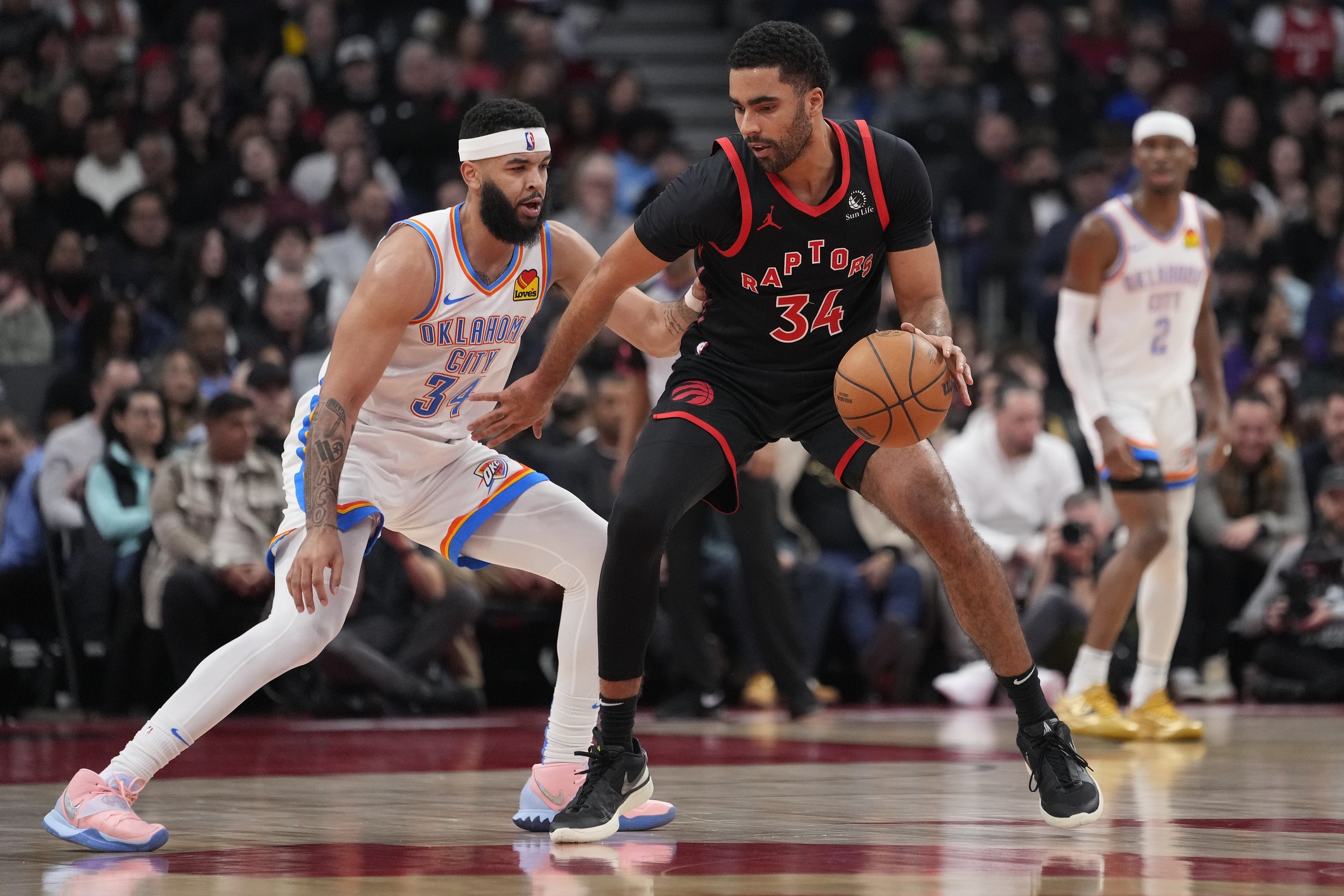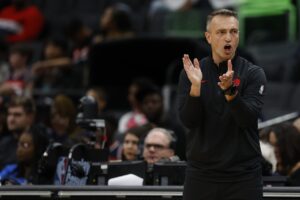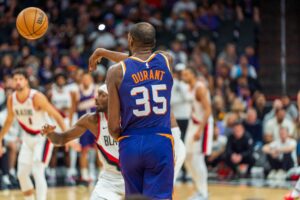The NBA has revised a significant rule targeting in-game phone use by players and coaches. It should be aptly named the “Jontay Porter Rule.” Officially, it is yet to be given a name. This restriction aims to limit potential distractions on the court. More importantly, it signals the league’s ongoing commitment to promoting game integrity. While the rule is supposed to maintain focus, it’s clear that the driving force may actually lie in safeguarding the league’s reputation amid growing gambling concerns.
The NBA’s ‘Jontay Porter’ Rule
Prohibition of In-Game Phone Use: What Does It Mean?
The NBA’s new rule prohibits players, coaches, and other team staff from using their cell phones from tip-off until the end of the game. This rule affects both active and inactive players, preventing them from engaging with social media, sharing footage, or communicating with media members and staff during this period.
Each team will designate a point of contact for emergencies, including security and medical concerns. This individual can manage calls and messages if urgent issues arise. However, general usage will be strictly off-limits, with the league expected to announce further details soon. Penalties for violations are yet to be determined, but as the season unfolds, enforcement methods will likely become more apparent.
Keeping Focus on the Game: The Official Reason
The NBA has emphasized that this rule is intended to ensure that players and coaches keep their focus on the game. The NBPA has worked closely with the league on this revision, according to Ian Begley of SNY and it will build on the existing social media policy. That original policy was instituted in 2009, it prevented social media usage from the period starting 45 minutes before tipoff and ending after media obligations have been fulfilled. As part of this policy, teams will designate one point of communication for players and coaches during the period in which cell phones aren’t allowed. That staffer would be able to take calls and messages in the event of an emergency. The revised policy will prevent any use of phones or similar devices from tipoff until the end of the game.
According to insider Ian Begley, the NBA collaborated with the NBA Players Association on the revision. Begley highlighted that, officially, the rule aims to keep “eyes on the games and not screens.”
However, this explanation is head-scratching. Incidents of players using phones during games are rare. NBA players and coaches, as highly trained professionals, are not typically seen scrolling on social media while seated on the bench. Given the discipline and concentration required to compete at this level, it’s unlikely that cell phone use has been a distraction in the past.
Thus, while the league’s stated objective may sound logical on the surface, the focus argument doesn’t fully capture the complexity of the issue.
The Integrity of the Game: The Real Reason?
A deeper reason behind this rule may be tied to the NBA’s strong stance on preserving the game’s integrity, especially with the rise of sports gambling. The league has partnerships with major betting companies and actively promotes fair play and transparency. The “Jontay Porter Rule” could be seen as another measure to reinforce this commitment.
Concerns about the relationship between NBA personnel and gambling have been on the rise. Players and coaches possess detailed knowledge of team lineups, injury statuses, and real-time insights that could impact bets placed on games. By limiting phone use, the NBA aims to prevent individuals from taking advantage of inside information, which could lead to an unfair gambling advantage.
Jontay Porter and the NBA Gambling Crackdown
This rule is unofficially dubbed the “Jontay Porter Rule” due to the NBA’s recent actions against Porter. He was recently banned from the league due to his alleged involvement in gambling fraud. The specifics of his case involved accusations of violating the NBA’s gambling policies. These are intended to prevent conflicts of interest and maintain the league’s credibility. The NBA, in Porter’s case, took a strict stance. This signaled its intolerance for any behavior that could jeopardize the sport’s fairness and transparency.
By implementing the “Jontay Porter Rule,” the NBA is doubling down on its anti-gambling stance. The league wants to send a clear message to players, coaches, and staff that any behavior even remotely tied to gambling misconduct will not be tolerated. The Porter case sets a precedent for strict enforcement. It shows that even the suspicion of misconduct could lead to severe consequences.
Access to Injury Reports and Potential for Betting Influence
Another factor influencing the rule change may be the unique access players have to injury reports and other team dynamics. As players warm up, they can observe team members’ physical readiness and gauge whether a key player might be limited due to an injury. This information could directly affect betting decisions, as lineup changes or limited play from a star player often shifts betting odds.
The NBA may be introducing this rule to prevent players from using such privileged information to influence betting outcomes or share insights with outsiders. By cutting off phone access during games, the league removes this potential risk, reinforcing its commitment to fair play.
The NBA’s Learning From the Jontay Porter Incident to Boost Gambling Integrity
The new rule also highlights the NBA’s balancing act between fan engagement and preserving the integrity of the game. Gambling is only going to become more deeply integrated into professional sports. Leagues like the NBA face the challenge of maintaining a product that is both exciting and credible. On one hand, sports betting brings a new level of interest and investment from fans, boosting league revenue. On the other, it introduces complexities related to fairness and ethics.
With this rule, the NBA is making a clear statement: integrity comes first. The league’s effort to restrict phone use during games aligns with this priority. It shows that it is willing to take unpopular or controversial steps to ensure fair play. Although the rule may face criticism, it reinforces a culture of discipline and accountability within the league.
Conclusion: A Step Toward Transparency or an Unnecessary Restriction?
The NBA’s new “Jontay Porter Rule” may raise questions. However, it’s ultimately an attempt to secure the league’s image as a fair and transparent organization. Some could argue that phone use during games was never an issue. However, the rule serves as a proactive measure to address potential integrity concerns related to gambling.
Whether the rule will achieve its intended effect remains to be seen. As the season progresses, its impact on players, coaches, and team dynamics will become clearer. However, the NBA’s commitment to fair play and the integrity of the game is undeniable.






